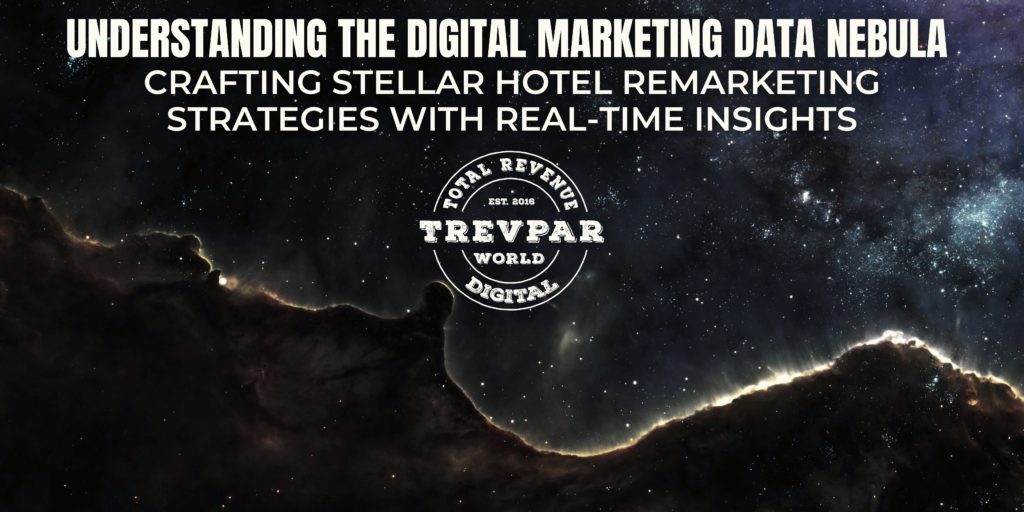
In the digital age, the utilization of real-time data generated from hotel social media and Google platforms is of utmost importance. By harnessing this data, hotels can implement retargeting digital marketing campaigns with the primary objective of increasing the rate of direct bookings from their websites.
The Significance of Real-Time Data
Real-time data refers to the information that is collected and analyzed as it is generated. In the context of hotel social media platforms, this data includes user interactions, engagements, preferences, and feedback. Similarly, Google platforms provide insights regarding user behaviours, search patterns, and preferences. By utilizing platforms such as GTM (Google Tag Manager), hotels can actively track engagements with their website, including trending availability searches and room type focus percentage. This enables hotels to attribute personalized campaigns to actions made in real-time by a captured audience.
Overlooking the booking button is one of the more common shortfalls made by hotels in developing retargeting campaigns. This is where the highest percentage of engaged customers can be found and should form of the base of retargeting efforts through META Pixels.
META Pixels are small pieces of code that track users across Facebook & Instagram and are usually used to develop segmented customer audiences. By building META Pixels into a booking button, the ability to track what potential customers are doing in the final phase of the online user journey can be leveraged through customized campaigns delivered to customers via social media within seconds. However, it is important to constantly manage elements such as budding auctions and creative changes to ensure not only that the ad appears in front of the right person, but also to ensure sufficient motivation to convert into bookings.
Retargeting in Digital Marketing
Retargeting is a marketing strategy that aims to re-engage users who have previously interacted with a hotel’s website or social media channels but have not yet made a booking. This technique enables hotels to stay top-of-mind and remind potential guests about their offerings, ultimately increasing the likelihood of a direct booking.
The Intersection of Real-Time Data and Retargeting
By combining real-time data from hotel social media and Google platforms, hotels gain deeper insights into their audience’s preferences, needs, and booking patterns. This valuable information can be used to create highly targeted and personalized retargeting campaigns, thereby improving the chances of converting potential guests into direct bookings.
Segmenting Audiences
Real-time data analysis allows hotels to segment their online audience based on various factors such as demographics, interests, previous interactions or bookings, and timing. By understanding these segments, hotels can tailor their retargeting campaigns with precise messaging, offers, and promotions that resonate with each audience segment. This can be further enhanced through A/B testing via various ad groups on PPC campaigns and META Ads.
Personalized Messaging and Offers
The answer to the age-old question “Are my devices listening to me?” Technically, yes. Though sophisticated code, customer listening takes place on a daily basis, in order to capture guests who are already engaged in the process of seeking or booking a hotel. Retargeting campaigns can be further enhanced by creating personalized messaging and offers based on real-time data. For example, if a potential guest shows interest in a specific hotel service or amenity on social media, retargeting ads can be customized to highlight similar offerings, promotions, or discounts, thereby increasing the likelihood of a direct booking.
Dynamic Advertisements
When a potential guest starts the booking process but fails to complete it, hotels can use retargeting campaigns to improve conversion rates. By tracking the user’s progress and analyzing the data, the hotel can send personalized reminders or incentives (such as exclusive discounts or added benefits) to entice the user to complete the booking. This helps in recovering potential bookings that might have otherwise been lost.
Geographically Targeted Promotions also utilize data from the user’s location, hotels can retarget potential guests with location-specific promotions. For example, if a user has shown interest in a particular destination but has not yet booked, the hotel can retarget them with customized offers, showcasing the hotel’s proximity to popular attractions or events in that location. This targeted approach increases the relevancy of the offer, making it more likely for the user to convert into a direct booking.
Timing and Frequency
Real-time data helps hotels in determining the ideal timing and frequency of their retargeting efforts. By analyzing user behaviours, such as the time of day or the frequency of website visits, hotels can optimize their campaigns to reach potential guests when they are most likely to convert.
Measurement and Optimization
One of the significant advantages of using real-time data is the ability to measure the effectiveness of retargeting campaigns. Hotels can track key performance metrics such as click-through rates, conversion rates, and direct bookings. This data can then be used to refine and optimize future campaigns, ensuring maximum return on investment.
In closing, the relationship between real-time data generated from hotel social media and Google platforms provides valuable insights that can be leveraged to fuel effective re-targeting digital marketing campaigns. By using this data to segment audiences, personalize messaging, create dynamic ads, optimize timing and frequency, as well as measure campaign effectiveness, hotels can increase the rate of direct bookings from their website. Embracing the power of real-time data is crucial for hotels looking to stay ahead in the highly competitive digital landscape and drive revenue growth through effective digital marketing strategies.
Author – Wade Scobbie – TrevPAR World Digital Marketing Specialist
